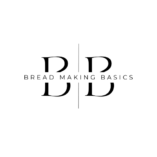This site may contain affiliate links to products. We may receive a commission for purchases made through these links.
There’s a certain magic in the process of transforming grains into flour, especially when it comes to baking homemade bread. Milling your own flour allows you to experience the freshest and most flavorful results, taking your bread-making adventures to new heights. I am going to explore the benefits of milling your own flour, provide recommendations for milling products, and guide you on choosing the right grains for your bread.
Why Mill Your Own Flour?
- Superior Freshness: Store-bought flour may lose its freshness over time due to oxidation and storage conditions. Milling your own flour ensures that you have the freshest possible product, capturing the full flavor and aroma of the grains.
- Enhanced Nutritional Value: Freshly milled flour retains more nutrients since it hasn’t been subjected to the prolonged storage and processing associated with commercial flours. You’ll enjoy the full nutritional benefits of the grains, including fiber, vitamins, and minerals.
- Customization and Variety: Milling your own flour gives you control over the coarseness, texture, and type of flour you produce. You can experiment with different grains, creating unique blends and exploring a wide range of flavors in your bread.
Choosing a Grain Mill:
- Manual Grain Mills: These mills require manual effort to grind the grains and are suitable for those who enjoy a hands-on approach. They are often compact, affordable, and can be used during power outages or in outdoor settings. Look for mills with sturdy construction and adjustable settings, such as this one, for grinding different types of grains.
- Electric Grain Mills: Electric mills offer convenience and speed, making them ideal for regular home use. They typically have various settings to adjust the fineness of the flour and come with powerful motors for efficient milling. Consider the capacity, noise level, and ease of use when choosing an electric grain mill.They even make attachments for the beloved KitchenAid.
Recommended Grain Mill Products:
- Mockmill Grain Mill: The Mockmill series offers both manual and electric grain mills known for their quality craftsmanship and versatility. They are designed to grind grains efficiently while preserving nutrients and flavor.
- NutriMill Classic Grain Mill: This electric grain mill is highly regarded for its powerful motor and ability to grind a wide range of grains. It features variable texture control, allowing you to achieve fine to coarse flour depending on your needs.
Choosing Your Grains:
- Wheat: Commonly used in bread making, wheat grains offer a balance of gluten strength and flavor. Hard red wheat is excellent for whole wheat bread, while hard white wheat produces lighter loaves.
- Rye: Rye flour adds a distinct earthy flavor to bread. Choose whole grain rye or rye berries for milling.
- Spelt: Spelt flour is an ancient grain with a nutty flavor and a good source of fiber. It can be used alone or mixed with other flours for added complexity.
- Kamut: Kamut is an heirloom grain known for its buttery flavor and rich nutritional profile. It works well in bread and provides a unique taste experience.
Milling your own flour opens up a world of possibilities in bread making. Not only does it allow you to experience the freshness and superior flavor of freshly milled flour, but it also grants you the freedom to experiment with various grains and create personalized blends. Whether you opt for a manual or electric grain mill, investing in this essential tool will elevate your baking endeavors and unlock a new level of creativity in the kitchen. So, embrace the art of milling, select your favorite grains, and embark on a bread-making journey that will delight your senses and nourish your soul. Happy milling and baking!
